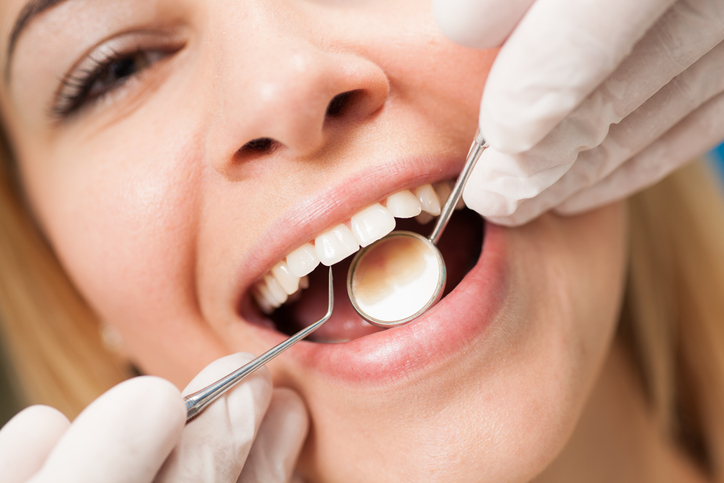
Calcium is essential for strong bones and teeth, so how can calcium deposits on your teeth be harmful?
Calcium is essential for strong bones and teeth. As the National Institute of Health points out, it’s the most abundant mineral in the body, with 98 percent of calcium stored in our bones. So how can calcium deposits on your teeth be harmful?
In dental terms, calcium deposits on the teeth refer to a buildup of hardened tartar, also known as calculus. Tartar contains calcium phosphates and appears white or off-white, which is why it’s easily mistaken as calcium. But those calcium deposits must be removed if you want healthy teeth and gums. Keep on reading to learn why!
How does calcium form on the teeth?
Tartar or calculus begins as plaque, a sticky substance that coats the tooth’s enamel. Plaque forms when bacteria mixes with your saliva. It also interacts with sugars and starches in food, creating an acid that wears down the tooth’s enamel.
Regular brushing and flossing can clear away most of the plaque. However, when plaque isn’t completely removed, it can harden into tartar, also known as calcium deposits. Tartar often develops along the inner surface of the front teeth and the upper molars near the cheeks. Salivary gland ducts continuously feed calcium-containing saliva into the mouth near those teeth, making them more vulnerable to calcium deposits.
Tartar buildup can cause the teeth to take on a yellowish, brown, or dark color. The surface of the teeth may feel rough if you stroke your tongue against them. Your gums may also bleed more when you brush or floss, and your breath may smell bad.
Plaque clings to hardened tartar, which leads to a never-ending cycle of tartar buildup. Unremoved tartar, especially around the gum line, can lead to gum recession and gum disease.
As tartar eats away at the enamel, cavities will form. You may also develop abscesses and suffer tooth loss. But there are ways to prevent those complications, and it begins with visiting your dentist.
Getting rid of tartar
Hardened tartar is stubbornly hard to remove. The only way to successfully get rid of it is by going to your dentist for a twice-yearly tooth cleaning. The hygienist is highly trained in using metal instruments designed to scale away the tartar. They may also use a vibrating ultrasonic tool to remove the tartar. After the cleaning, your dentist will polish the enamel to smooth out any rough spots. Your dentist will perform a deep cleaning if you have extensive tartar buildup along the gum line and the roots.
Online retailers sell at-home tartar removal kits. But don’t be fooled! Your dental hygienist can see inside your mouth better than you can and spot tartar deposits. You can also damage your enamel and gums if you’re not trained in using those tools.
That doesn’t mean you can’t do things at home to prevent tartar or reduce its accumulation. Instead of an expensive kit that may do more harm than good, follow these practices:
Brush twice a day. While it may not completely remove tartar, brushing is the one weapon you have in controlling it. Use tartar-control toothpaste if your dentist recommends it.
Floss daily. Plaque collects between teeth. But flossing can reduce the amount of plaque between your teeth and decrease tartar buildup.
Limits sweets and starches. Sugar and starch promote the growth of bacteria and plaque, which leads to tartar. Limit those foods, or at least brush after consuming them.
Schedule regular dentist checkups. Your dental hygienist can thoroughly clean your teeth and remove tartar. But if you practice good hygiene daily, you won’t have much tartar to remove, and the cleaning will be a breeze!
Time for a checkup?
Schedule an appointment at Espire’s Norman, OK, location today! Our highly trained dentists and hygienists can thoroughly clean your teeth and remove damaging tartar. Don’t live near our Norman, OK, office? Find one of our other locations near you.
Norman, OK
550 24th Ave. S.W.
Norman, OK 73069
